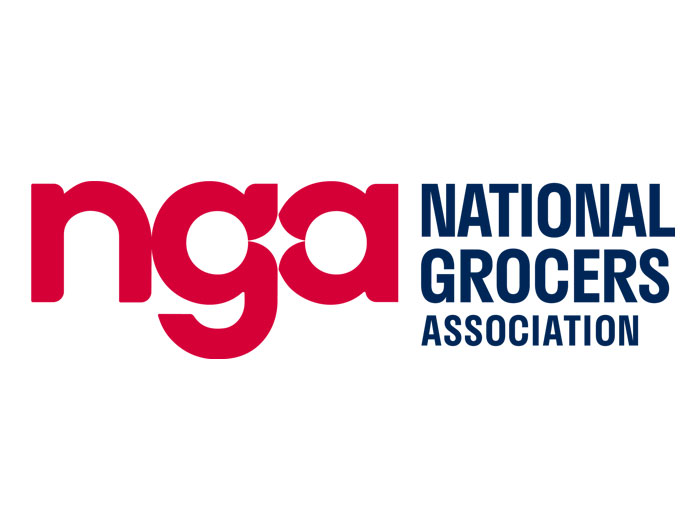National Grocers Association (NGA) Commends FTC’s Enforcement of Robinson-Patman Act
December 16, 2024 | 4 min to read
In a historic 3-2 vote, the FTC has revived enforcement of the Robinson-Patman Act, crucial for ensuring fair competition among grocery retailers. This decision aims to curb the unchecked power of large grocery chains that manipulate supplier terms, ultimately driving up prices for consumers. The National Grocers Association applauds this action as it seeks to foster equality in the market, benefiting small and medium-sized businesses while enhancing access to affordable food for American communities.

Upholding of Existing Antitrust Law Sends Strong Warning to Grocery Power Buyers
WASHINGTON, DC — In a 3-2 vote, the Federal Trade Commission (FTC) took historic action to restore enforcement of the Robinson-Patman Act (RPA), a critical antitrust law that will level the playing field for small-and-medium-sized-businesses. Even incoming Chair Andrew Ferguson clearly acknowledged the long overdue use of the Act by the FTC in his dissent.
The RPA prohibits price discrimination when competing buyers purchase goods in similar quantities or volumes. Enforcement of this critical antitrust law is a significant step toward ensuring that all retailers and wholesalers have equal access to discounts, enhancing retail price competition and ultimately expanding opportunities for all American consumers to enjoy lower prices, no matter where they shop.
After the Department of Justice and FTC abandoned RPA enforcement based on flawed theories that it would harm consumers, big retailers seized the opportunity to gain and use their market power to strong-arm suppliers into granting exclusive, favorable terms – deals that smaller competitors cannot access. By leveraging these advantages, power buyers insulate themselves from competition, drive rivals out of the market, and ultimately contribute to higher prices for consumers.
One 2021 market study found that 69 percent of all US grocery sales are attributable to the top four largest grocery retailers. NGA has long advocated for RPA enforcement, contending that it will help lower the cost of food for Americans by extending discounts to more retailers, thereby bolstering competition between national chains and independent grocery stores.
“After years of steadfast advocacy efforts by our members and partners, we applaud this historic vote by the Federal Trade Commission to enforce the Robinson-Patman Act for the first time in decades. Although not a unanimous decision, Commissioners from both parties signaled they are serious about enforcing this crucial law, particularly in cases of buyer power abuses. This sends an unambiguous message to power buyers that they aren’t above the law,” said NGA President & CEO Greg Ferrara.
Although the FTC’s enforcement action is confined to the alcohol marketplace, the revival of the Robinson-Patman Act sends a clear message to the entire retail industry that antitrust laws designed to protect competition and consumers should be followed and taken seriously.
In the grocery sector, the largest national chains have grown so large that they act as gatekeepers to consumer goods suppliers and agriculture producers. Their unchecked buyer power exacerbates food price inflation, contributes to acute product shortages, and restricts access to fresh food for countless American communities that once featured and depended upon bustling Main Street businesses.
“Grocery consolidation has made it extremely challenging for independent, family-run supermarkets to compete, as national chains have been allowed to illegally demand special pricing and treatment from suppliers for decades” said NGA Chief Government Relations Officer & Counsel Chris Jones. “By enforcing Robinson-Patman, the FTC is simply upholding good law, honoring Congress’ intent to level the playing field between local Main Street businesses and powerful Wall Street interests,” he concluded.
To learn more about NGA’s advocacy efforts on antitrust enforcement in support of independent grocers, visit our website.
About NGA
NGA is the national trade association representing the retail and wholesale community grocers that comprise the independent sector of the food distribution industry. An independent retailer is a privately owned or controlled food retail company operating a variety of formats. The independent grocery sector is accountable for about 1.2 percent of the nation’s overall economy and is responsible for generating more than $250 billion in sales, 1.1 million jobs, $39 billion in wages and $36 billion in taxes. NGA members include retail and wholesale grocers located in every congressional district across the country, as well as state grocers’ associations, manufacturers and service suppliers. For more information about NGA, visit www.nationalgrocers.org.
